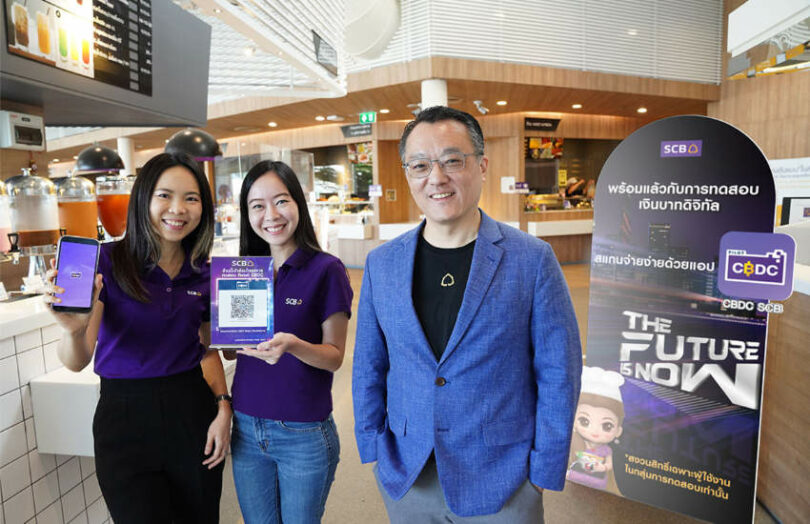Last month, Siam Commercial Bank (SCB) announced it has been working with the Bank of Ayudhya (Krungsri) and 2C2P Thailand to develop a central bank digital currency (CBDC) application for the country’s digital baht. The initiative is part of the Bank of Thailand‘s (BOT) retail CBDC pilot, which is operating in a regulatory sandbox with domestic payment service providers and will run throughout the summer.
The app combines digital payment services, know-your-customer (KYC) verification, and top-up procedures. Currently it is limited to a select group of participants of approximately 10,000 individuals, which includes both users and merchants across all the payment providers, with around 3,000 employees from the SCB group. However, the BOT does not have any immediate plans to launch a digital currency.
SCB’s CBDC App
In June, we reported the start of Thailand’s latest CBDC pilot, which involved retail payments around the Bank of Ayudhya’s offices using a mobile banking app that employees could use to pay for goods and services at participating stores. Last month, SCB confirmed it was involved in the digital currency application.
“We have developed the CBDC SCB application to test its functionalities, which include basic features such as topping up funds, making payments, transferring money, and converting CBDC back into regular currency,” said Dr. Chalee Asavathiratham, Senior EVP and Chief Digital Banking Officer at SCB.
The bank says the safety standards mirror those provided to its regular customers, including eligibility screenings, KYC identity verification and top-up procedures, and a direct contact channel for support and assistance.
It is also “actively exploring additional innovations and advancements in the CBDC system to address various business challenges,” although no further details were provided. Notably, the BOT maintains that the digital baht remains a project under study – a “Pilot to Learn, Not Pilot to Launch.”
Thailand’s past CBDC experience
The ongoing retail pilot complements the BOT’s past work on wholesale CBDC and cross-border applications. In 2021, it partnered with the Hong Kong Monetary Authority (HKMA) for Project Inthanon-LionRock, a multi-CBDC bridge initiative. The scheme later became Project mBridge, after joining forces with the central banks of China and the UAE.






